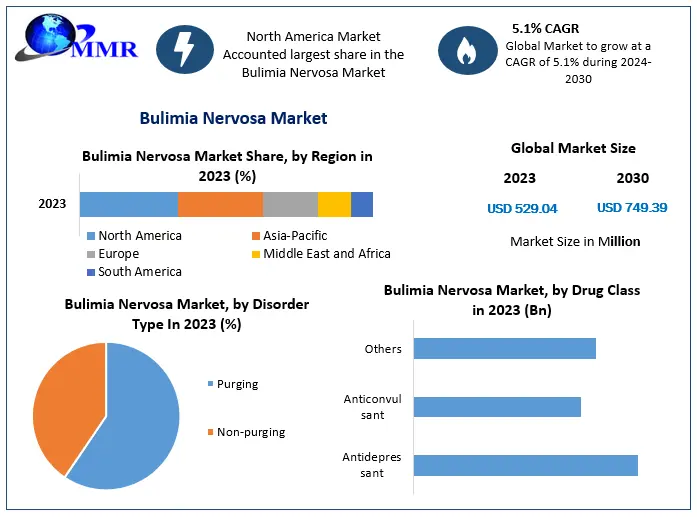ADHD-
What Role Does ADHD Play in Eating Disorder Treatment?
Eating disorder recovery takes attention, self-regulation, and intention.
Reviewed by Michelle Quirk
KEY POINTS-
Studies show that people with ADHD are more than three times as likely as the general population to develop an eating disorder.
Understanding ADHD symptoms that may be associated with the onset and maintenance of an eating disorder can be key to recovery.
A thorough assessment provides valuable information that can clarify a personal path to recovery by taking any comorbidities into account.
The statistics are startling. It turns out that people with attention-deficit/hyperactivity disorder (ADHD) are more than three times as likely as the general population to develop an eating disorder (ED). Some studies place this number even higher.
In addition, more than one-third of adult female patients being treated in a clinic for eating disorders who were given an adult ADHD self-test qualified for the diagnosis of ADHD.
When we treat ADHD, we can't ignore the impact it has on our relationship with food and our body, and when we treat eating disorders, we can't ignore the impact they have on our ability to focus, plan and regulate our emotions. —Dr. Roberto Olivardia, Ph.D.
So, ADHD and eating disorders often seem to come together, with significant shared genetic causality. This is true in children, across the lifespan, and in both men and women.
What Eating Disorders Correlate With ADHD
ADHD doesn’t predict the development of just any kind of eating disorder.
Eating disorders in the presence of ADHD can lead to significant reductions in quality of life, social isolation and devastating health consequences. —Dr. Kali Cyrus, MD
Specifically, the significant increase in risk is related to disorders involving loss of control with food, rather than specific obsessions about bodily appearance or weight management. In children with ADHD, this manifests as a 12-fold increase in the likelihood of developing the behaviors related to what is called “loss-of-control eating.” In adults, this manifests as an increased risk of developing one of three eating disorders: bulimia nervosa, anorexia nervosa (binge/purge subtype), or binge eating disorder.
Shared Mechanisms in ADHD and Eating Disorders
ADHD doesn't cause eating disorders, but it can contribute to disordered eating behaviors…. —Dr. Kimberly Dennis, MD
When it comes to disordered eating behaviors and ADHD, these three symptoms emerge most frequently: hyperactivity, inattention, and impulsivity. At a broader level, ADHD has been related to difficulties in executive function, emotion regulation, and conduct.
Let’s look at some of the most common shared mechanisms:
Reward system: The dopamine neurotransmitter is responsible for experiencing pleasure, controlling attention, and processing information, reward, learning, and motivation. Dopamine function is altered in both people with a loss-of-control ED and in people with ADHD. If your reward and learning system is not working fully, self-regulating may be more difficult and the reinforcement of attuned eating behaviors can be weakened, and, thus, unhelpful habits may stick around.
Inattention: Inattention to cues both inside and outside of the body can lead to disordered eating behaviors. For example, if you’re not paying proper attention to your body’s hunger and satiety signals, you may continue to eat even when you are full.
Impulsivity: Impulsivity can lead to sudden, unplanned behavioral choices typically made in response to strong or evocative cues. In the impulsive state, individuals typically value smaller-sooner rewards that will provide instant dopamine (such as consuming only ice cream for dinner after seeing an ad for it) than larger-later rewards that lead to better overall health (such as consuming a balanced meal along with ice cream).
Considerations for Eating Disorder Recovery
While ADHD symptomatology can be associated with the development of an eating disorder, it may also maintain unwanted eating behaviors. It is important to identify which ADHD symptoms might play a contributing role and figure out how to work with or mitigate these issues.
In particular, addressing attentional issues and impulse-control behaviors will have flow-on benefits to recovering from the eating disorder.
Attentional Issues
There are two helpful strategies for working with inattention:
Improve your inner attention: To help with inner appetite signals, it is good to learn practices that develop interoceptive awareness, such as mindfulness, yoga, meditative body scans, and so forth.
Add extra external cues: Use a gentle structure for meals and snacks. Then, add modern technology. Set alarms to alert you to mealtimes—with backup alarms in case you get distracted by an interesting project that interferes with eating when you are comfortably hungry. Not surprisingly, getting overly hungry can lead to feeling out-of-control hunger when you finally take a break or being tempted to skip eating in an attempt to diet.
Impulsivity
To manage the interference of impulsive behaviors, accept this part of yourself, set barriers, plan ahead, and draw your attention to the larger-later rewards you desire over those shorter-sooner immediate rewards. These can be done using the techniques mentioned above.
For example, you could use visual reminders or notes placed on your fridge that remind you that diets don’t work and why your long-term health goals matter to you. Losing a few pounds quickly will not sound as tempting if you keep in mind how often diets fail. Or you might keep a few easy-to-heat, frozen meals, fruit, yogurt, nuts, and cut veggies available for times when you might want to grab an unplanned snack.
Comorbidities
Having two or more mental health conditions at the same time, also known as comorbidity, can have a significant impact on the treatment of both—such as having an eating disorder and ADHD. Studies have shown that comorbidity may be associated with increased severity of symptoms, greater social impairment, lower quality of life, and higher risk of relapse. Thus, it is important to have a thorough assessment that offers a complete picture to pave a realistic path to recovery.
Though all health treatment should be tailored to address the individual needs of each person, that does not always happen. Treatments for ADHD and eating disorders should also be integrated, holistic, and focused on treating each individual as a whole. Be an advocate for yourself. If you are concerned you have ADHD, obsessive-compulsive disorder, anxiety, depression, trauma, or any other mental health problem that is not being addressed and worry that it may be getting in the way of recovering from an ED, speak up.
Medications
If you are taking medication to manage ADHD, know that there is promising research that suggests this medication may be beneficial for some types of eating disorder behaviors, so don’t fear your medication. Stimulants can, however, be associated with changes in appetite and interfere with interoceptive awareness. Thus, pay attention to satiety and do not skip meal times so that your eating does not, inadvertently, become restrictive.
The Upsides of ADHD Can Be Helpful
There are many options for developing skills that boost executive function, enhance emotion regulation, and create actions that align with your values. Some strategies that may be helpful include mindfulness practices, emotion-awareness skills, structured eating plans, apps that encourage goal setting and establishing priorities, understanding effective communication habits, adding pauses before taking action, applying time-management tools, and learning cognitive behavior therapy strategies.
Beyond interventions for change, there are numerous upsides to having ADHD. In one recent study (2022), Schippers et al. concluded that knowing the positive benefits of ADHD may significantly enhance coping. Five themes emerged as life-enhancing to participants:
Creativity
Being dynamic
Flexibility
Socio-affective skills
Higher-order cognitive skills
How can you leverage the positive aspects of ADHD to recover from an ED and build a meaningful life?
ADHD-
What Role Does ADHD Play in Eating Disorder Treatment?
Eating disorder recovery takes attention, self-regulation, and intention.
Reviewed by Michelle Quirk
KEY POINTS-
Studies show that people with ADHD are more than three times as likely as the general population to develop an eating disorder.
Understanding ADHD symptoms that may be associated with the onset and maintenance of an eating disorder can be key to recovery.
A thorough assessment provides valuable information that can clarify a personal path to recovery by taking any comorbidities into account.
The statistics are startling. It turns out that people with attention-deficit/hyperactivity disorder (ADHD) are more than three times as likely as the general population to develop an eating disorder (ED). Some studies place this number even higher.
In addition, more than one-third of adult female patients being treated in a clinic for eating disorders who were given an adult ADHD self-test qualified for the diagnosis of ADHD.
When we treat ADHD, we can't ignore the impact it has on our relationship with food and our body, and when we treat eating disorders, we can't ignore the impact they have on our ability to focus, plan and regulate our emotions. —Dr. Roberto Olivardia, Ph.D.
So, ADHD and eating disorders often seem to come together, with significant shared genetic causality. This is true in children, across the lifespan, and in both men and women.
What Eating Disorders Correlate With ADHD
ADHD doesn’t predict the development of just any kind of eating disorder.
Eating disorders in the presence of ADHD can lead to significant reductions in quality of life, social isolation and devastating health consequences. —Dr. Kali Cyrus, MD
Specifically, the significant increase in risk is related to disorders involving loss of control with food, rather than specific obsessions about bodily appearance or weight management. In children with ADHD, this manifests as a 12-fold increase in the likelihood of developing the behaviors related to what is called “loss-of-control eating.” In adults, this manifests as an increased risk of developing one of three eating disorders: bulimia nervosa, anorexia nervosa (binge/purge subtype), or binge eating disorder.
Shared Mechanisms in ADHD and Eating Disorders
ADHD doesn't cause eating disorders, but it can contribute to disordered eating behaviors…. —Dr. Kimberly Dennis, MD
When it comes to disordered eating behaviors and ADHD, these three symptoms emerge most frequently: hyperactivity, inattention, and impulsivity. At a broader level, ADHD has been related to difficulties in executive function, emotion regulation, and conduct.
Let’s look at some of the most common shared mechanisms:
Reward system: The dopamine neurotransmitter is responsible for experiencing pleasure, controlling attention, and processing information, reward, learning, and motivation. Dopamine function is altered in both people with a loss-of-control ED and in people with ADHD. If your reward and learning system is not working fully, self-regulating may be more difficult and the reinforcement of attuned eating behaviors can be weakened, and, thus, unhelpful habits may stick around.
Inattention: Inattention to cues both inside and outside of the body can lead to disordered eating behaviors. For example, if you’re not paying proper attention to your body’s hunger and satiety signals, you may continue to eat even when you are full.
Impulsivity: Impulsivity can lead to sudden, unplanned behavioral choices typically made in response to strong or evocative cues. In the impulsive state, individuals typically value smaller-sooner rewards that will provide instant dopamine (such as consuming only ice cream for dinner after seeing an ad for it) than larger-later rewards that lead to better overall health (such as consuming a balanced meal along with ice cream).
Considerations for Eating Disorder Recovery
While ADHD symptomatology can be associated with the development of an eating disorder, it may also maintain unwanted eating behaviors. It is important to identify which ADHD symptoms might play a contributing role and figure out how to work with or mitigate these issues.
In particular, addressing attentional issues and impulse-control behaviors will have flow-on benefits to recovering from the eating disorder.
Attentional Issues
There are two helpful strategies for working with inattention:
Improve your inner attention: To help with inner appetite signals, it is good to learn practices that develop interoceptive awareness, such as mindfulness, yoga, meditative body scans, and so forth.
Add extra external cues: Use a gentle structure for meals and snacks. Then, add modern technology. Set alarms to alert you to mealtimes—with backup alarms in case you get distracted by an interesting project that interferes with eating when you are comfortably hungry. Not surprisingly, getting overly hungry can lead to feeling out-of-control hunger when you finally take a break or being tempted to skip eating in an attempt to diet.
Impulsivity
To manage the interference of impulsive behaviors, accept this part of yourself, set barriers, plan ahead, and draw your attention to the larger-later rewards you desire over those shorter-sooner immediate rewards. These can be done using the techniques mentioned above.
For example, you could use visual reminders or notes placed on your fridge that remind you that diets don’t work and why your long-term health goals matter to you. Losing a few pounds quickly will not sound as tempting if you keep in mind how often diets fail. Or you might keep a few easy-to-heat, frozen meals, fruit, yogurt, nuts, and cut veggies available for times when you might want to grab an unplanned snack.
Comorbidities
Having two or more mental health conditions at the same time, also known as comorbidity, can have a significant impact on the treatment of both—such as having an eating disorder and ADHD. Studies have shown that comorbidity may be associated with increased severity of symptoms, greater social impairment, lower quality of life, and higher risk of relapse. Thus, it is important to have a thorough assessment that offers a complete picture to pave a realistic path to recovery.
Though all health treatment should be tailored to address the individual needs of each person, that does not always happen. Treatments for ADHD and eating disorders should also be integrated, holistic, and focused on treating each individual as a whole. Be an advocate for yourself. If you are concerned you have ADHD, obsessive-compulsive disorder, anxiety, depression, trauma, or any other mental health problem that is not being addressed and worry that it may be getting in the way of recovering from an ED, speak up.
Medications
If you are taking medication to manage ADHD, know that there is promising research that suggests this medication may be beneficial for some types of eating disorder behaviors, so don’t fear your medication. Stimulants can, however, be associated with changes in appetite and interfere with interoceptive awareness. Thus, pay attention to satiety and do not skip meal times so that your eating does not, inadvertently, become restrictive.
The Upsides of ADHD Can Be Helpful
There are many options for developing skills that boost executive function, enhance emotion regulation, and create actions that align with your values. Some strategies that may be helpful include mindfulness practices, emotion-awareness skills, structured eating plans, apps that encourage goal setting and establishing priorities, understanding effective communication habits, adding pauses before taking action, applying time-management tools, and learning cognitive behavior therapy strategies.
Beyond interventions for change, there are numerous upsides to having ADHD. In one recent study (2022), Schippers et al. concluded that knowing the positive benefits of ADHD may significantly enhance coping. Five themes emerged as life-enhancing to participants:
Creativity
Being dynamic
Flexibility
Socio-affective skills
Higher-order cognitive skills
How can you leverage the positive aspects of ADHD to recover from an ED and build a meaningful life?





